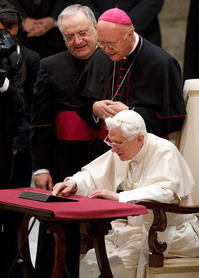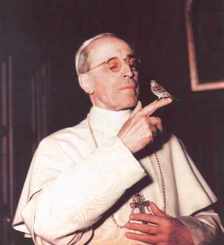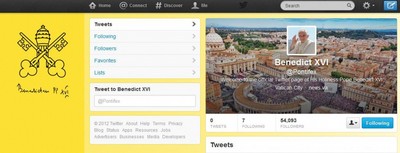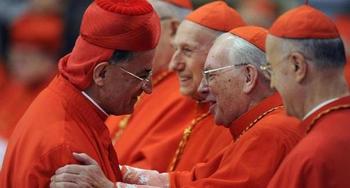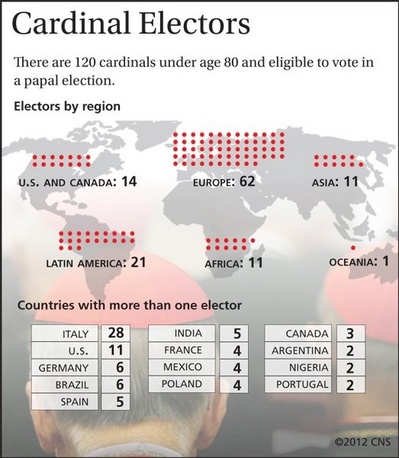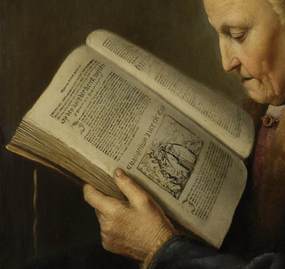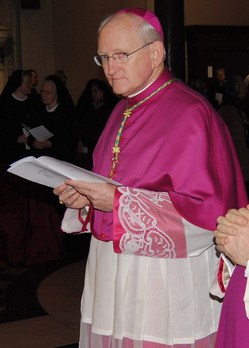Tag: Pope Benedict XVI
Millions tweet, even the Pope
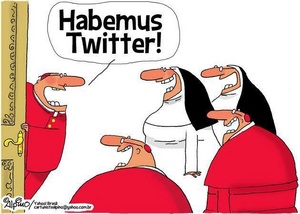 We now have a Pope that tweets. It’s big news. Now there seems to be close to a million people following Pope Benedict’s Twitter account @pontifex in a variety of languages.
We now have a Pope that tweets. It’s big news. Now there seems to be close to a million people following Pope Benedict’s Twitter account @pontifex in a variety of languages.
Benedict XVI to tweet… join in
You heard yesterday that Pope Benedict XVI is now tweeting. Terrific!
The Papal Twitter account is up and running: @Pontifex
As of right now, the English page has 381K followers, the German has 9.5K, the Spanish 88K, the Italian has 36K, the French has 7k and the Arabic has 3,000.
The Press Office of the Holy See said the following about the Papal presence in the digital media.
The The Pope’s presence on Twitter
is a concrete expression of his conviction that the Church must be present in
the digital arena. This initiative is best understood in the context of his
reflections on the importance of the cultural space that has been brought into
being by the new technologies. In his Message for World Communications Day
2009, which was published on the same day as the Vatican’s Youtube channel was
opened, Pope Benedict spoke of the necessity of evangelizing the ‘digital
continent’ and he invited young believers, in particular, to introduce
into the culture of this new environment of communications and information
technology the values on which you have built your lives.
Pope to the faithful: bear witness to the kingdom of God, to the truth
Conversion advances the Kingdom of God. There is no possibility of entering the Kingdom prepared and promised to us without turning away from sin and truly walking on the path given by the Lord. AND this Kingdom is totally other than what we known and expect. And because of our baptism our vocation is to build the Kingdom according to a plan that is not our own. At the Mass offered by the Pope on the
Solemnity of Our Lord Jesus Christ, King of the Universe, he did so with the six cardinals and their friends and family. The homily follows.
Today’s Solemnity of
Christ, King of the Universe, the crowning of the liturgical year, is enriched
by our reception into the College of Cardinals of six new members whom,
following tradition, I have invited to celebrate the Eucharist with me this
morning. I greet each of them most cordially and I thank Cardinal James Michael
Harvey for the gracious words which he addressed to me in the name of all. I
greet the other Cardinals and Bishops present, as well as the distinguished
civil Authorities, Ambassadors, priests, religious and all the faithful,
especially those coming from the Dioceses entrusted to the pastoral care of the
new Cardinals.
In this final Sunday of the liturgical year, the Church invites
us to celebrate the Lord Jesus as King of the Universe. She calls us to look to
the future, or more properly into the depths, to the ultimate goal of history,
which will be the definitive and eternal kingdom of Christ. He was with the
Father in the beginning, when the world was created, and he will fully manifest
his lordship at the end of time, when he will judge all mankind. Today’s three
readings speak to us of this kingdom. In the Gospel passage which we have just
heard, drawn from the account of Saint John, Jesus appears in humiliating
circumstances – he stands accused – before the might of Rome. He had been
arrested, insulted, mocked, and now his enemies hope to obtain his condemnation
to death by crucifixion. They had presented him to Pilate as one who sought
political power, as the self-proclaimed King of the Jews. The Roman procurator
conducts his enquiry and asks Jesus: “Are you the King of the Jews?” (Jn
18:33). In reply to this question, Jesus clarifies the nature of his kingship
and his messiahship itself, which is no worldly power but a love which serves.
He states that his kingdom is in no way to be confused with a political reign:
“My kingship is not of this world … is not from the world” (v. 36).
Continue reading Pope to the faithful: bear witness to the kingdom of God, to the truth
Pope Benedict’s homily for new cardinals: being Catholic embraces the whole universe, bear witness to Christ
These words, which the new Cardinals are soon to
proclaim in the course of their solemn profession of faith, come from the
Niceno-Constantinopolitan creed, the synthesis of the Church’s faith that each
of us receives at baptism. Only by professing and preserving this rule of truth
intact can we be authentic disciples of the Lord. In this Consistory, I would
like to reflect in particular on the meaning of the word “catholic”,
a word which indicates an essential feature of the Church and her mission. Much
could be said on this subject and various different approaches could be
adopted: today I shall limit myself to one or two thoughts.
The Infancy Narratives by Joseph Ratzinger
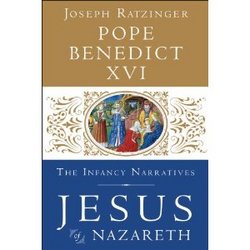 The third and final volume of Joseph Ratzinger’s bestselling idea on Jesus of Nazareth was generally released today. In the USA it will be released on December 4. The Infancy Narrative (Random House, 2012) is available on Amazon with real good pre-order discount.
The third and final volume of Joseph Ratzinger’s bestselling idea on Jesus of Nazareth was generally released today. In the USA it will be released on December 4. The Infancy Narrative (Random House, 2012) is available on Amazon with real good pre-order discount.
New cardinals are coming
The six bishops being created cardinals of the Holy
Roman Church this coming Saturday are: US Archbishop James M. Harvey, 63,
prefect of the papal household; Lebanon’s Maronite Patriarch Bechara Rai, 72;
Indian Archbishop Baselios Cleemis Thottunkal, 53, head of the Syro-Malankara
Catholic Church; Nigerian Archbishop John Olorunfemi Onaiyekan of Abuja, 68;
Colombian Archbishop Ruben Salazar Gomez of Bogota, 70; and Philippine
Archbishop Luis Tagle of Manila, 55. As signs of the new vocation the new cardinals
will receive from the Pope the red cardinal’s hat and a ring. By custom they
are referred as Your Eminence and in print they are often called “Princes of
the Church.”
Work to regain the light of faith lost, or weakened, Pope preaches
The Pope’s homily at the close of the Synod of Bishops on the New Evangelization.
The miracle of
the healing of blind Bartimaeus comes at a significant point in the structure
of Saint Mark’s Gospel. It is situated at the end of the section on the
“journey to Jerusalem”, that is, Jesus’ last pilgrimage to the Holy City, for
the Passover, in which he knows that his passion, death and resurrection await
him. In order to ascend to Jerusalem from the Jordan valley, Jesus passes
through Jericho, and the meeting with Bartimaeus occurs as he leaves the city –
in the evangelist’s words, “as he was leaving Jericho with his disciples and a
great multitude” (10:46). This is the multitude that soon afterwards would
acclaim Jesus as Messiah on his entry into Jerusalem. Sitting and begging by
the side of the road was Bartimaeus, whose name means “son of Timaeus”, as the
evangelist tells us. The whole of Mark’s Gospel is a journey of faith, which
develops gradually under Jesus’ tutelage. The disciples are the first actors on
this journey of discovery, but there are also other characters who play an
important role, and Bartimaeus is one of them. His is the last miraculous
healing that Jesus performs before his passion, and it is no accident that it
should be that of a blind person, someone whose eyes have lost the light. We
know from other texts too that the state of blindness has great significance in
the Gospels. It represents man who needs God’s light, the light of faith, if he
is to know reality truly and to walk the path of life. It is essential to
acknowledge one’s blindness, one’s need for this light, otherwise one could
remain blind for ever (cf. Jn 9:39-41).
Continue reading Work to regain the light of faith lost, or weakened, Pope preaches
New cardinals named by Pope Benedict
In a surprise given to the Church this morning, Pope Benedict announced his intention to name new cardinals in November. One of them is an American, Archbishop James Michael Harvey of Milwaukee who has been serving at the Apostolic Household as its Prefect for the last several years. These new cardinals lifts the numbers eligible to vote in a conclave to 122.
In announcing
the intention to create new cardinals, the Pope said: “The Cardinals have
the task of helping the Successor of Peter in the performance of his ministry
of confirming the brethren in the faith, and that of being the principle and
foundation of unity and communion of the Church … fulfill their ministry in the
service of the Holy See or as fathers and pastors of particular Churches in
various parts of the world.”
The proposed list of new cardinals are
- Archbishop James
Michael Harvey, 63, Prefect of the Pontifical House, who is also appointed
Archpriest of the Basilica of Saint Paul outside the Walls, - His Beatitude Béchara
Boutros Raï, 72, Patriarch of Antioch of the Maronites (Lebanon), - His Beatitude
Baselios Cleemis Thottunkal, 53, Major Archbishop of Trivandrum of the Syro-
Malankara (India), - Archbishop John Olorunfemi Onaiyekan, 68, Archbishop of Abuja
(Nigeria), - Archbishop Ruben Salazar Gómez, 70, Archbishop of Bogota (Colombia),
- Archbishop Luis Antonio Tagle, 55, Archbishop of Manila (Philippines).
The
consistory will take place on November 24.
Philosophy and theology are important in the Church’s dialogue with the contemporary world
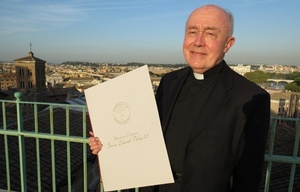 The Ratzinger Prize is getting a whole currency these days: it is the second year that’s been bestowed on worthy scholars. What’s novel of me is that it’s not everyday that you get a prize for serious work from the man the prize is named after, and that he’s the Supreme Pontiff! The 2012 Ratzinger Prize was given to a French philosopher and American theologian on Saturday, October 20, 2012. Pope Benedict said that “Father Daley and Professor Brague are exemplary for the transmission of knowledge that unites science and wisdom, scientific rigor and passion for man, so that man might discover the [true] ‘art of living.'” Chris Altieri has the Vatican Radio report here.
The Ratzinger Prize is getting a whole currency these days: it is the second year that’s been bestowed on worthy scholars. What’s novel of me is that it’s not everyday that you get a prize for serious work from the man the prize is named after, and that he’s the Supreme Pontiff! The 2012 Ratzinger Prize was given to a French philosopher and American theologian on Saturday, October 20, 2012. Pope Benedict said that “Father Daley and Professor Brague are exemplary for the transmission of knowledge that unites science and wisdom, scientific rigor and passion for man, so that man might discover the [true] ‘art of living.'” Chris Altieri has the Vatican Radio report here.